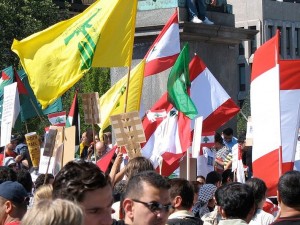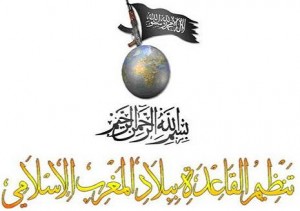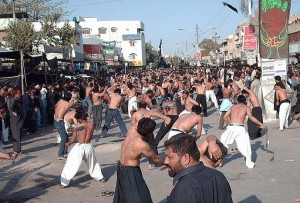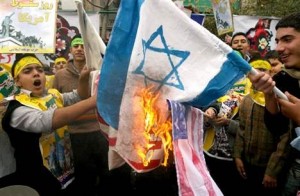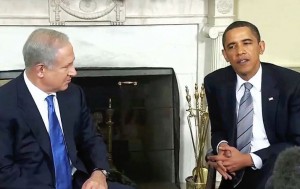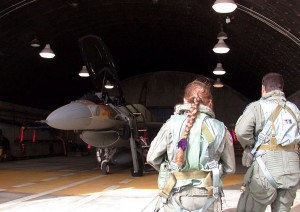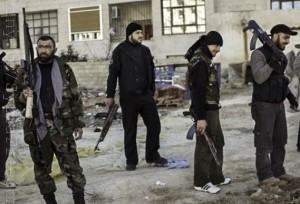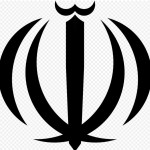US Confirms Killing IRGC Commander Qassem Soleimani in Air Strikes Near Iraq’s Baghdad International Airport on January 3
Please be Advised:
The US Department of Defense (DoD) released a statement announcing that the US military, on the orders of the US President, Donald Trump, had taken “decisive defensive action to protect US personnel abroad” by killing Qassem Soleimani, the Islamic Revolutionary Guards Corps (IRGC)- Quds Force (QF) commander during airstrikes near Iraq’s Baghdad International Airport during the early morning hours of January 3.
The statement announces that “General Soleimani was actively developing plans to attack American diplomats and service members in Iraq and throughout the region. General Soleimani and his Quds Force were responsible for the deaths of hundreds of American and coalition service members and the wounding of thousands more”. The airstrikes aimed to deter future Iranian attacks against US assets in the region.
Iran’s national news agency have confirmed that the US airstrikes resulted in the death of IRGC Quds Force commander Qassem Soliemani and Abu Mahdi al-Muhandis, the deputy commander of the Iran-backed Popular Mobilization Forces (PMU).
Iraq’s national news agency reported that the US airstrikes targeted the convoy of Qassem Soleimani and Abu Mahdi al-Muhandis traveling near the Baghdad International Airport.
Supreme Leader of Iran, Ali Khamenei released a eulogy on January 3 for Qassem Soleimani and declared a three-days of mourning in Iran. The statement announces that the killing of Soleimani is a “criminal act” and “will reinforce the motives of the resistance against the US and Israel”.
Iran’s Foreign Minister Javad Zarif called the US airstrikes “extremely dangerous and a foolish escalation” and held the US responsible for “all consequences of its rogue adventurism.”
Prominent Iraq Shiite cleric, Muqtada al-Sadr, released a statement during the morning hours of January 3 giving orders for “readiness” to the Shiite militias in Iraq, particularly the Mahdi Army, “to protect Iraq”.
Reports indicate that Iran’s Supreme National Security Council has convened during the morning hours of January 3 to discuss the development.
US Embassy in Baghdad on January 3 issued an advisory urging US citizens to depart Iraq immediately due to “heightened tensions in Iraq and the region”. Consular services in the US Embassy in Baghdad have been suspended until further notice. However, the US Consulate in Erbil remains operational at the time of writing.
Iraqi President has reportedly condemned the US airstrikes and called US action as a “blatant violation of Iraqi sovereignty”.
Developments Near the Baghdad International Airport and Green Zone:
Reports indicate that three rockets fired by unidentified perpetrators landed in the Baghdad International Airport cargo area during the overnight hours of January 2-3 that resulted in several civilian casualties and the destruction of two vehicles.
Reports indicate that US military personnel arrested Hadi al-Amiri the head of the Badr Organization, the military wing of the Supreme Council for Islamic Revolution in Iraq (SCIRI), as well as Qais Khazali, the founder and leader of Asaib Ahl al-Haq, a Shiite paramilitary group that is a part of the Iran-backed PMU in Baghdad during the morning hours of January 3. Iraq’s national news agency reported that a senior member of the Asaib Ahl al-Haq has denied the arrest of Qais Khazali.
Picture material on social media indicate that Iraqis gathered at Baghdad’s Tahrir Square during the early morning hours of January 3 to celebrate the death of Soleimani.
At the time of writing, operations have resumed at the Baghdad International Airport following a temporary ceasure of operations during the morning of January 3 after the US airstrikes.
Reports indicate that US military personnel have bolstered security protocols in the Green Zone in Baghdad, and the Iraqi security officials have completely locked down the Green Zone following the US airstrikes.
Other Related Developments:
Iran’s state-sponsored news agency reported that the Swiss Ambassador to Iran, who is considered as a “guardian of US interests in Iran” has been summoned to the Iranian Foreign Ministry on January 3 to strongly protest the killing of Qassem Soleimani.
Reports indicate that Israel has closed access to Hermon ski resort, located in the Golan Heights, near the Israel-Syria border, due to the risk of attack by Iran and its proxies. Additional reports indicate that Israel Defense Forces (IDF) are on alert following the US airstrikes.
Palestinian Islamic Jihad (PIJ) official in the Gaza Strip reportedly released a statement calling the development a “great tragedy” and extended PIJ’s support to Iran.
Hezbollah leader Hassan Nasrallah in Lebanon reportedly released a statement condemning the US airstrikes as a “big crime” and stated that “punishment of Soleimani’s killers is responsibility of all fighters”.
Reports indicate that foreign oil companies have commenced the evacuation of its employees holding a US citizenship via the Basra Airport following the advisory issued by the US Embassy in Baghdad that urges US nationals to depart the country immediately.
Iran has reportedly appointed Brigadier General Esmail Ghaani as the next IRGC Quds force chief on January 3.
UK has reportedly increased security protocols at its military bases across the Middle East following the US airstrikes.
Reports quoting the Russian Foreign Ministry announced that the US airstrikes in Iraq are a “reckless move” that will escalate tensions in the region.
Assessments & Forecast:
The development comes amid a marked increase in tensions in Iraq over the past two months following an uptick in attacks against US assets by Iran-backed forces in the country. Most recently, on December 31, hundreds of Iran-backed Popular Mobilization Units (PMU) members and supporters besieged and attempted to breach the US Embassy compound in Baghdad’s Green Zone to condemn US’s December 29 airstrikes that targeted five Kataib Hezbollah assets in Iraq. The continued risk posed to US-linked interests in Iraq is further evidenced by the statement issued by the US Secretary of Defense Mark Esper on January 2, that holds Iran and its backed proxies in Iraq responsible for perpetuating the attacks and warned that “attacks against us will be met with responses in the time, manner, and place of our choosing.” Given this context, the recent US airstrikes constitute a decisive action against Iran and its proxies to deter further such attacks against US interests in the region.
Furthermore, the US airstrikes constitutes a highly symbolic and notable development given the high-profile nature of the target, namely, IRGC-QF commander, Qassem Soleimani. This is given that Soleimani is considered to be highly influential within the Iraqi political and security dynamics, and is perceived to be responsible for the destabilizing activities carried out by Iran-linked elements in Iraq. Moreover, on April 18, 2019 the US designated the IRGC, including its extraterritorial wing, the QF as a Foreign Terrorist Organization (FTO). Therefore, the killing of Soleimani in the US airstrikes is likely aimed to adversely impact the IRGC’s leadership structure and mitigate the threat that the group is perceived to pose to the region’s security and stability. Regardless, the killing of Soleimani is liable to have a significant impact on the morale of the IRGC and Iran-backed fighters operating regionwide.
However, the development is unlikely to significantly alter Iran’s policy within the regional setting, such as its support for proxies like the Lebanese Hezbollah, the Yemeni Houthis, and Shiite militias in Iraq. Rather, as evidenced by the statement released by Iran’s Supreme Leader, Ali Khamenei, the incident will likely prompt Iran and its proxies to increasingly target the interests of the US and its allies, such as Israel and Saudi Arabia in the region. Furthermore, the statement issued by Shiite cleric, Muqtada al-Sadr calls for “readiness” from Shiite militias in Iraq to “protect Iraq” indicating the fact that Iran and its proxies will seek to take revenge against the US, and its allies, over the coming days.
FORECAST: Over the short term, there remains a heightened potential for attacks perpetrated by Iran-backed elements based out of Lebanon, Yemen, Syria, Iraq and the Gaza Strip. Such attacks may also be directed at critical infrastructures, such as oil facilities, and other strategic infrastructures affiliated with the US or its allies in the region, where relevant. Given precedent, attacks targeting Israel may likely manifest in the form of rocket attacks or localized ground attacks, such as placing of IEDs, from Syria, or less likely from Lebanon. Such instances are likely to be limited in scale, and are unlikely to trigger a large-scale escalation and a broad deterioration of the security situation in Israel in the short term. Cross-border hostilities along the Gaza Strip-Israel border may also increase over the coming days. This is bolstered by the statement released by the PIJ official calling the death of Soleimani in the US airstrikes as a “big crime” and affirming the militant group’s support for Iran.
FORECAST: Given precedent, there also remains a significant potential for Iran-perpetrated security incidents in the strategic waterways of the Persian Gulf and the Gulf of Oman, especially near the Strait of Hormuz, which indicates a general risk of navigation through these waters over the coming days and weeks. A similar risk exists in the Red Sea, given that the Iran-backed Houthis in Yemen have been known to conduct attacks against foreign vessels in this area. Additionally, an uptick in cross-border hostilities into Saudi Arabia perpetrated by the Shiite group may be witnessed over the coming days, despite a significant downtick in such activity over the recent months. This may manifest in the form of missile, rocket or unmanned aerial vehicle (UAV) launches towards military and civilian assets in Saudi Arabia.
FORECAST: In the longer term, over the coming weeks and months, the development is liable to further heighten tensions between the US and its allies, on the one side, and Iran and its proxies on the other, which will likely result in increasing hostile rhetoric towards the other party and potentially a more significant retaliation by Iran against US interests. Given that Iran-backed proxies, such as Hezbollah, are known to operate in Latin America, as well as other African, Asian and European countries, the risk for attacks by such elements against the interests of the US and its allies in the aforementioned regions cannot be ruled out.
Recommendations:
Travelers are advised to regularly review their emergency and contingency procedures as a basic security precaution, as the current tensions between Iran on one side and the US and its Gulf allies on the other will likely lead to additional hostilities. For on-ground or intelligence assistance contact us at: [email protected] or +44 20-3540-043.
Foreigners, particularly US nationals, conducting travel in Middle East, particularly in Iraq, Iran, Syria, and Lebanon are advised to maintain a low profile due to the increased potential for militant attacks while practicing extra vigilance near US and Western diplomatic missions and interests across the region.
Ensure that places of stay are equipped with sufficient perimeter security details, alter travel routes, and avoid disclosing sensitive itinerary information to unknown individuals.
For those conducting essential operations in Baghdad, it is advised to restrict travel to the Green Zone and ensure that contingency and emergency evacuation plans are updated. Contact us for itinerary and contingency support options.
Those managing or operating vessels in the Red Sea, Gulf of Oman, the Persian Gulf, and the Strait of Hormuz are advised to take necessary precautions, including reviewing security protocols and adhering to international instructions, in light of the potential for security incidents in the area.
